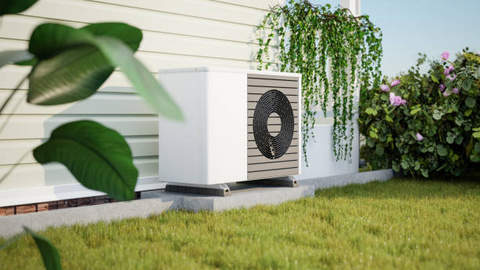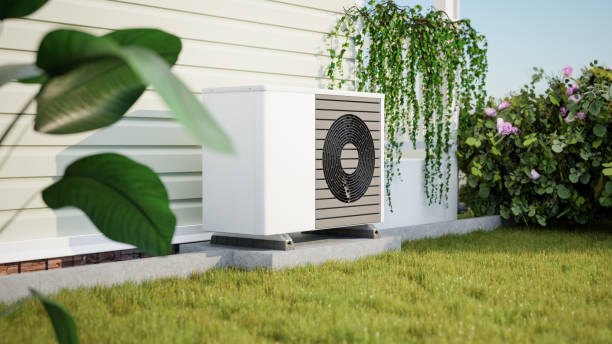In the quest for energy-efficient and sustainable heating solutions, heat pumps have emerged as a promising contender. Offering both heating and cooling functionalities, heat pumps utilize the principles of thermodynamics to transfer heat from one place to another, making them highly efficient alternatives to traditional heating systems. But are heat pumps truly the best option for home heating? Let's delve deeper into the mechanics, benefits, and considerations surrounding heat pump technology.

Understanding Heat Pumps
Heat pumps operate by extracting heat from the air, ground, or water sources outside the home and transferring it indoors. This process involves the compression and expansion of refrigerant gases within a closed-loop system, facilitating the transfer of thermal energy. During colder months, heat pumps can reverse this process to extract heat from outdoor air, even in sub-zero temperatures, and distribute it inside the home.
Air-Source Heat Pumps
Air-source heat pumps are the most common type, utilizing outdoor air as the primary heat source. They are typically more affordable to install and are well-suited for moderate climates.
Ground-Source Heat Pumps (Geothermal)
Ground-source heat pumps harness the relatively stable temperature of the earth's subsurface to provide heating and cooling. While they often have higher upfront costs, they boast greater energy efficiency and can deliver consistent performance regardless of outdoor temperatures.
Water-Source Heat Pumps
Water-source heat pumps extract heat from a water source, such as a pond or well, offering an alternative to air and ground-source systems. They are particularly advantageous in areas with access to ample water resources.
Energy Efficiency
One of the primary advantages of heat pumps is their high energy efficiency. By transferring heat rather than generating it through combustion, heat pumps can achieve impressive Coefficient of Performance (COP) ratings, resulting in significant energy savings for homeowners.
Versatility
Heat pumps provide both heating and cooling capabilities, offering year-round comfort in a single system. This versatility eliminates the need for separate heating and air conditioning units, streamlining HVAC installations and reducing overall maintenance costs.
Environmental Sustainability
With growing concerns about climate change and carbon emissions, the environmental benefits of heat pumps must be considered. By relying on renewable energy sources such as air, ground, or water, heat pumps reduce reliance on fossil fuels, thereby lowering greenhouse gas emissions and mitigating environmental impact.
Long-Term Cost Savings
While the initial investment in a heat pump system may be higher than traditional heating alternatives, the long-term cost savings can be substantial. Lower energy bills, reduced maintenance expenses, and potential incentives or rebates for energy-efficient upgrades can make heat pumps a financially prudent choice over time.
Upfront Costs
While heat pumps offer numerous benefits, they often require a higher initial investment compared to conventional heating systems. Homeowners should carefully weigh the upfront costs against the long-term savings and benefits to determine the overall value proposition.
Climate Compatibility
The effectiveness of heat pumps can vary depending on the climate and geographic region. While air-source heat pumps are suitable for most climates, extreme cold temperatures may diminish their efficiency. In colder regions, ground-source or hybrid heat pump systems may be more appropriate to ensure consistent performance year-round.
Installation and Sizing
Proper installation and sizing are critical factors in maximizing the performance and efficiency of a heat pump system. Homeowners should enlist the expertise of qualified HVAC professionals to assess their home's heating and cooling needs accurately and recommend the appropriate heat pump size and configuration.
Maintenance Requirements
Like any HVAC system, heat pumps require regular maintenance to ensure optimal performance and longevity. This includes periodic inspections, filter replacements, and occasional servicing by licensed technicians. Homeowners should factor in ongoing maintenance costs and requirements when evaluating the overall cost of ownership.
Conclusion
In conclusion, heat pumps represent a compelling solution for home heating, offering energy efficiency, versatility, and environmental sustainability. While they may not be the perfect fit for every scenario, their numerous benefits make them a worthy consideration for homeowners looking to upgrade their heating systems. By understanding the mechanics, benefits, and considerations associated with heat pumps, homeowners can make informed decisions that align with their comfort, budget, and environmental goals.

